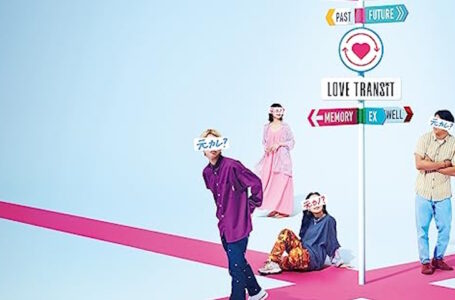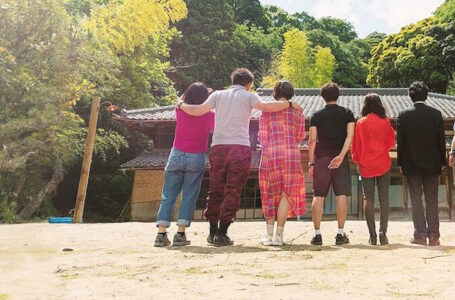REA(L)OVE was a mistake
The premise of Japanese reality dating show REA(L)OVE — available on Netflix — seemed refreshing and unique. So much so that its obviously lacking budget wouldn’t be a problem if it could bring something new to the table while respecting its stars. (Ha! – Ed.)
Considering the title of this article, you have probably already guessed that is not exactly what happened. I should have learned my lesson after the failings of what Terrance House, supposedly the most authentic and problem-free Japanese reality TV show, ended up actually hiding. But apparently not! So let’s talk about it — and, if it’s not too late, attempt to convince you that this show is not worth your time.
But before we get into the details, let’s state the primary issue first and foremost. Reality TV as we already know it, regardless of country of origin, is draining; despite the name, it sucks all sense of authenticity out of the things it depicts, and it destroys the drive and humanity of anyone placed in front of its uncaring and merciless cameras. And I believe I’ve found one of the most egregious examples of reality TV’s very worst practices with REA(L)OVE.
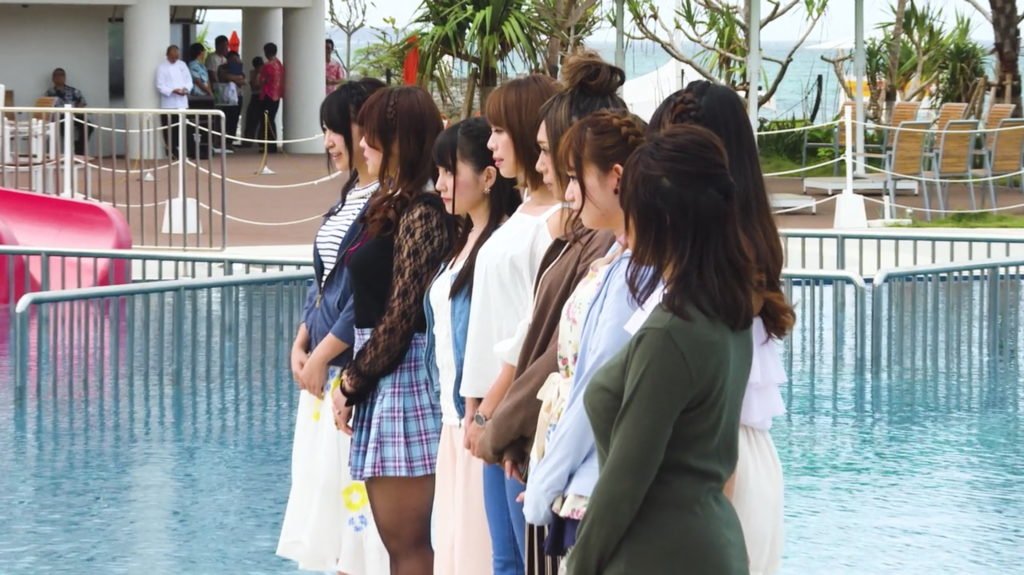
You call him a host?
I watched REA(L)OVE when it first appeared on Netflix, and while I felt like I wanted to talk about it, I had no idea how to approach the topic since everything I had to say about it was so overwhelmingly negative. But, well, we’re here now — and I can finally get it all off my chest and leave it behind me for good.
REA(L)OVE is what you would call a trashy TV show that you love to hate. The only reason you’d be glued to the TV screen to watch its nine episodes back-to-back would be because of its unusual premise. There are 18 contestants — 10 men and eight women — who are brought together at a blind meet and greet, with the one and only goal being to fall in love with someone of the opposite sex at the event. It’s an unbalanced number because one man and three women dropped out of the show at the last minute — and so far as I’m concerned, they had a lucky escape from what was yet to come!
REA(L)OVE was filmed over the course of just three days, and one of its defining elements was how contestants’ darkest secrets would be revealed in “Real Face Time” segments that occur randomly and at any moment; a sound would indicate them happening, and the show’s male host Atsushi Tamamura would select a card from the deck that bore the cast’s secrets.
A potentially intriguing premise, but the shortness of REA(L)OVE’s run time coupled with the short period over which it was filmed means little to no romance actually occurs — especially once seemingly disastrous secrets make people take steps back from one another. It’s particularly unfortunate for anyone who was given this treatment early in the show, since it had the potential to quickly put off other contestants from even trying to approach them with romantic intentions.
These dark secrets include addictions, debt, criminal activity, adultery and pornography work to name just a few examples. There are a lot of telling signs that the show is indeed scripted, but that makes the product all the more questionable when its contestants and hosts are as cruel as they are.
Main male host Tamura is a famous comedian, but he slut-shames, calls people names and is clearly transphobic and misogynistic, having a tendency to belittle and criticise every single thing the female contestants say or do. But the very worst can be heard in what he has to say when any contestant bravely comes forward with a genuine trauma, which he tends to make a joke out of despite them being victims.
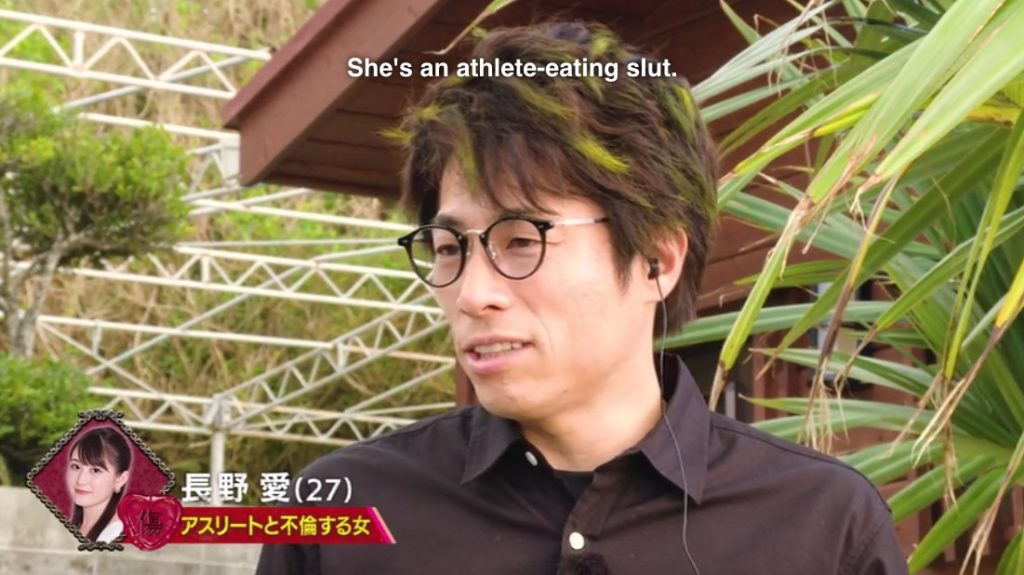
And it’s not just Tamura. A specific example to highlight the double standards of REA(L)OVE overall can be seen when a male contestant who has slept with 150 women is regarded as having a “sex addiction”, while a female contestant who has slept with around 30 men is called a “slut” — an instance of name-calling which leaves her in tears.
Tamura has not a shred of empathy in him, unlike his female co-host, Mari Yaguchi of Morning Musume fame — but she also ends up at the mercy of his “dark comedy” when he brings up her own scandals from the past.
On the whole, Tamura feels like he brings the already lacking production values of the show plummeting down due to his unprofessionalism; he treats the majority of the contestants as nothing more than verbal punching bags and lost causes as soon as their dark secret is revealed. And that doesn’t make for fun TV, so far as I’m concerned.
How to make everyone feel overwhelmingly depressed
The dark secrets were interesting to see uncovered as good indicators of what we would regard as “taboo” compared to a Japanese audience; there are definitely some intriguing cultural differences there. Additionally, it’s worth noting that the contestants themselves were almost always understanding and supportive of one another, even when their dark secrets were revealed. It was especially touching when the contestants could relate to each other’s secrets, which led to some genuinely heartwarming scenes.
But REA(L)OVE ultimately mistreats these individuals who have made mistakes in their respective pasts. The dark secrets, despite providing entertainment for the end viewer, leave everyone with a bitter taste in their mouth. Said dark secrets come across less as an opportunity for the contestants to accept one other and redeem themselves, and instead feel like they’ve simply been included as a reason to belittle and condemn them.
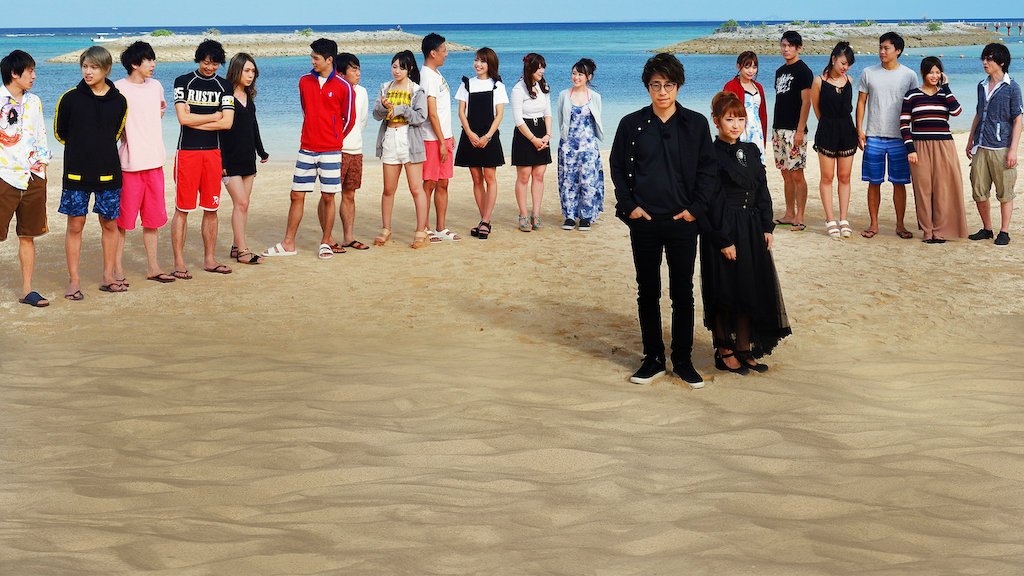
The biggest blow with regard to this issue can be seen with the contestant Towako Suzuki, the only cast member who seemed genuinely authentic and absolutely deserving of far better. She ends up drawing the shortest straw in REA(L)OVE’s finale when the pairings are decided in a “ceremonial” moment, and it’s especially soul-crushing to witness. Ultimately, the show proves to be a reality check for how victims are treated when they’re attempting to grow from and move beyond past mistakes. It’s off-putting, disheartening, and depressing.
Conclusion
If I have one compliment to give to the show, it is to do with how it ends. Much like any other reality TV show, we get to see the aftermath of the contestants’ time spent in the show. These show the audience which couples ended up lasting outside of the show — and even shows us some unexpected pair-ups that happened once the cameras were away from them, though these were mostly platonic in nature.
But in the end, despite giving us a form of comforting closure, the wild ride before it all felt like nothing more than a car crash — one that I couldn’t look away from, but which repulsed me nonetheless.
REA(L)OVE is labelled as a dating show, but it’s arguably more of a social experiment that went off the hinges. It’s distasteful, cruel, offensive, and mean-spirited — so if you want to feel bad, by all means, check it out. Because as the show fails to point out effectively, no matter how dark someone’s secret might be, they deserve the chance to love and be loved just like anyone else. I just hope its participants felt that the embarrassment of vocalising their secrets was cathartic enough for them to see an improvement in their (love) lives after their ordeal was over. They deserved better.
Do yourself a favour and watch Love is Blind: Japan instead. Both are available on Netflix. I just hope I’ve steered you in the right direction. Now I can finally rid my mind of this odious show completely, and never think about it ever again!
Join The Discussion
Rice Digital Discord
Rice Digital Twitter
Rice Digital Facebook
Or write us a letter for the Rice Digital Friday Letters Page by clicking here!
Disclosure: Some links in this article may be affiliate links, which means we may earn a small commission if you make a purchase after clicking on them. This is at no additional cost to you and helps support Rice Digital!
- Sigh of the Abyss: Shadow Bonds – Prologue Review - October 7, 2023
- Is She The Wolf? is wickedly addicting TV - October 6, 2023
- The steady consumption of Slow Damage - October 5, 2023





